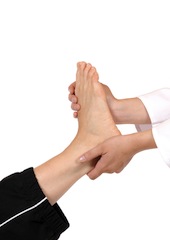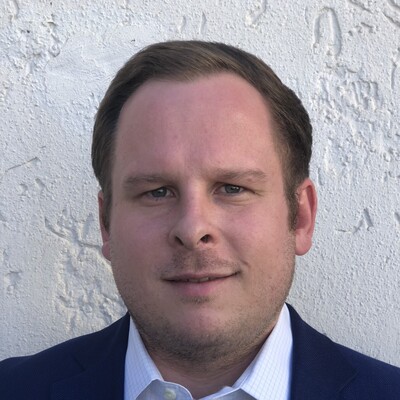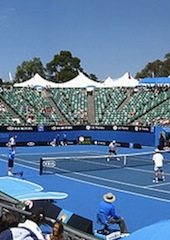Seeing China In A Different Light
Reflections on the delivery of social services in China.
February 2, 2014

It is widely known that China lacks a modern public welfare system, even though the country is making progress on offering such services. For now, a lack of existing basic welfare services means that public support for the disabled is non-existent.
Every society experiences the tension over how to provide services to vulnerable people, whether they are provided by caring communities or via public policy. Ultimately, it’s about the mix of both, as services through public policy are unlikely to supplant those in the community.
This is a story of how one community in China integrates some of their disabled members into a functioning wider community. This integration not only helps the disabled sustain themselves, but, more important, it helps give them a purpose in life.
The setting
Pingshan is a small village in Nanshan District, Shenzhen, China. It is located just outside the limits of “University Town,” a conglomeration of top Chinese universities, housing Peking University, Tsinghua University and Harbin Institute of Technology.
The heart of Pingshan consists of small local businesses – restaurants, convenience stores and hair salons, among others.
Since life in China can be intense, my favorite thing to do in Pingshan for relaxation is to get foot massages. For a westerner, massage is truly one of the highlights of living in China. For $8, one can get a one-hour massage.
The massage business I frequent is located inconspicuously on the second floor of an old building. One cannot see it from the street. If a friend hadn’t taken me there the first time, assuring me of its innocence, I might have thought it was a very different kind of “massage” place.
However, this business serves a critical purpose for the blind members of Pingshan’s community. Across China, blind massage is fairly common.
Masters of ancient practice
The idea behind blind massage is fairly intuitive: Blind people may not be able to see, but their other senses are heightened. In a country where massage is seen as more of a medical solution than a relaxation technique, the employment of blind masseurs and masseuses makes a lot of sense.
The medical idea behind foot massage, or “reflexology,” as it is more accurately called, is straightforward. By placing pressure on certain areas of the foot, where all the nerve endings of the body’s critical organs come together, reflexologists can relieve tension. They can thereby improve the functioning of those organs.
I am aware that this has been widely disputed by western medicine and I am not here to argue one way or the other – although I personally believe that there is something to the Chinese claim.
There is one masseur at blind massage in Pingshan in particular, whose facial expressions while practicing reflexology do indeed give credence to the ancient Chinese belief that foot massage serves a medical purpose.
While giving massage, one can see the blind masseur feeling around intensely, ultra-concentrated as he moves around small areas of one’s foot, millimeter by millimeter, searching for soreness. Finally, when he finds what he was looking for, he concentrates on that area – and one can feel the improvement.
Sustainable commitment to the community
Ultimately, however, the benefit to a customer is not only medical. It is the experience that counts. The blind masseurs live on site, assisted in living and operation of the business by a non-blind individual. One can see the benefits of their belief in the importance of their work and of being able to interact with people.
When I visited the business recently with a group of international students, the masseurs asked where we were from – clearly hearing the inconsistencies in our broken Chinese. My masseur tapped me on the shoulder: “You are American? You are my friend. Welcome, my American friend.”
One of the better laughs I have had recently also occurred at blind massage. A tall, well-built Norwegian friend of mine was given a tea footbath, a traditional part of the massage process in China.
My friend from the frozen north shrieked when he put his feet in the liquid, as it was piping hot. My international friends and I, as well as the masseurs, got a very good laugh out of that, even as his masseur made his way out of the room to get some cold water.
Witnessing the joy of people who lack a basic physical function that everyone else takes for granted is an important experience for anyone, anywhere in the world.
State vs. community
The point of blind massage is not to take pity on these individuals. They provide an important service and do it very well. In reality, they provide a superior service at a competitive price. Being a socially responsible consumer is an added benefit.
It is one small example of how a less fortunate community in China takes care of its own in the midst of the rapid growth and change around them.
Westerners have more public policy for the disabled. That reflects their stage of economic development. However, I have heard Europeans say that the degree of public provisions they have actually discourages people from acting to help each other on the community level.
The United States has had the Americans with Disabilities Act since 1990 – a good piece of public policy. It arose from a need identified by people in communities throughout the nation who were giving aid and who continue to do so, but who needed the assistance of public policy to make the delivery of these services consistent.
China is showing that it has the compassion and the sense of community that must underlie any effective public policy. The massive urbanization wave makes this challenge both easier (people live more densely) and more difficult (people lead more anonymous lives) at the same time.
I have no doubt that China, too, will continue to develop both community-based and public policy-based services for its disabled citizens.
Takeaways
The joy of people who lack something that everyone else takes for granted is important for anyone to experience.
The blind masseurs provide a superior service at a competitive price.
One sees the benefits of their belief in their work and of interacting with people.
The facial expressions of one masseur give credence to the belief that foot massage serves a medical purpose.
My masseur tapped me on the shoulder: “You are American? You are my friend. Welcome, my American friend.”
China is showing that it has the compassion and sense of community that underlies any effective public policy.

